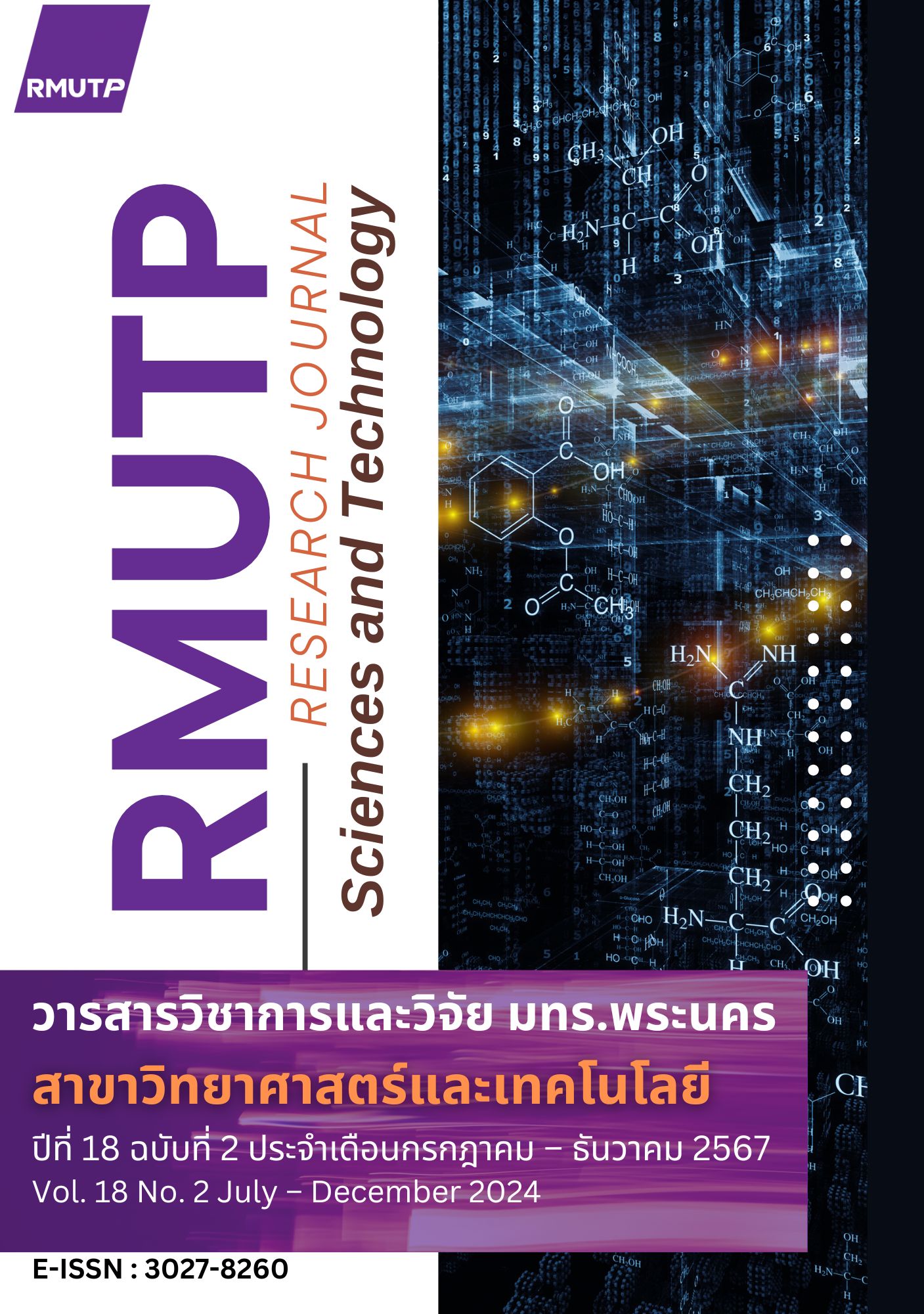Analysis of Important Factors Affecting the Tenure of Professional Technicians in the Organization
Main Article Content
Abstract
The purpose of this research is to analyze important factors that affect the tenure of professional Technicians at large automobile centers in the country. Years of employment in an organization are very important as it is one of the factors that can be used to determine employee satisfaction and happiness at work. If the employees have a long working life, then the stability of management and operations will be stable. In addition, it will make it possible to predict operating results as well as reduce the cost of hiring new positions to replace them, and it also reduces the rate of resignation from work. The study of influences affecting the tenure of professional technicians in an organization was conducted with a sample of 245 people. Data were collected by means of a survey using a questionnaire as a tool. Collecting data from samples to analyze the data using quantitative statistics to explain averages, percentages, standard deviations and uses reference statistics such as analysis of variance (One Way ANOVA). In testing personal factors using the Multiple Regression Analysis method to analyze the influence of push factors and attract factors that affect tenure in the organization. The results of the study found that the different personal factors in terms of salary and age have different effects on the tenured of skilled technicians in an organization. As for the personal factors of different educational levels, there is no difference in the effect on the tenured of skilled technicians in an organization. In terms of pushing factors and attracting factors, it was found that they influence the tenure in the organization of skilled technicians at a statistical significance at the 0.05 level. It can be concluded that attracting factors have a greater influence on the tenure of skilled technicians in an organization than pushing factors.
Article Details

This work is licensed under a Creative Commons Attribution-NonCommercial-NoDerivatives 4.0 International License.
ลิขสิทธ์ ของมหาวิทยาลัยเทคโนโลยีราชมงคลพระนครReferences
Master Plan for Automotive Industry 2019-2023.
The Adecco Group, Annual Report, 2022.
CCC Intelligent Solutions Inc., 2022; Forbes, 2022.
United Nations Industrial Development Organization, Annual Report 2020.
Thailand Automotive Institute, 2020.
Hireology, 2020.
Cox Automotive, 2019.
NADA. Dealership Workforce Study. “Automotive Retail: National & Regional trends in Compensation,” Benefits & Retention. 2016.
D. Mc. Dowell. “Core Values and Professional Integrity,” 2010. http://www.mncap.org/protocol/CoreValues_ProfIntegrity.pdf. Retrieved from February ,25 2022.
E. Diener, R. A. Emmons, R. J. Larsen and S Griffin., “Satisfaction with Life Scale (SWLS). Journal of Personality Assessment,” 49 (1), 1985, pp.71-75.
J. Manion. “Joy at work: Creating a positive workplace. Journal of Nursing Administration,” 33 (12), 2003, pp.652-655.
P. Pigors and C. A. Meyers, “Personnel Administration: A point of view and method,” New York: McGraw-Hill. 1973.
L. R. Sayles and G. Strauss, “Managing human resource. Englewood Cliffs,” NJ: Prentice-Hill. 1977.
N. Srirattanaphan, “Trend of Quitting Jobs at Kohler (Thailand) Co.,Ltd,” Master of Business Administration Thesis (Business Administration), Chonburi: Burapha University, 2010.
S. KwanThong and T. Krischaroen, “A study of factors affecting the intention to leave the job of employees of Generation Y.,” Social science journal Srinakharinwirot University, Year 18, January-December, 2015.
Eric, G. L., et al., “The impact of job satisfaction on turnover intent: A test of a structure measurement model using a national sample of workers.” The Social Science Journal, 38, Hickman & Silva. 1984; citing Warner.1991). 2001, pp.233-250.
R. Prasertsri “Organizational Behavior” Bangkok: Thammasat Company, 2005.
M Sawangbamrng, “Survey of factors affecting the resignation of employees in private industrial plants in Chonburi Province.” Master of Education degree thesis, Department of Guidance Psychology Graduate School Burapha University, 1993.
W.H. Mobley, “Intermediate Linkages in the Relationship Between Job Satisfaction and Employee Turnover.” Journal of Applied Psychology, 62(2), 1977, pp.237-240.
T. Yamane, “Statistics, An Introductory Analysis.” New York: Harper and Row. 1976.
A. Sawangarom, “Personal factors working environment job satisfaction and intention to resign from production staff Case study of a sample bread factory,” M.A. Thesis, Bangkok: King Mongkut's Institute of Technology North Bangkok, 2006.
Y. Thiwatphon, “Factors affecting the trend of employee turnover Case study: Employees of a company in the Eastern Industrial Estate. Chonburi Province,” Master of Business Administration Thesis (Business Administration). Chonburi: Burapha University, 2010.
W. Duangdee, “Reasons for employees to resign and the organization's reputation may be lost,” 2011. Retrieved on 14 October 2014, from http://www.bangpoosociety.com
S. Wittawat-Olan, “Gen Y, hold on tight and make it work,” Bangkok: Bangkok Thurakit Business Book, 2007.


